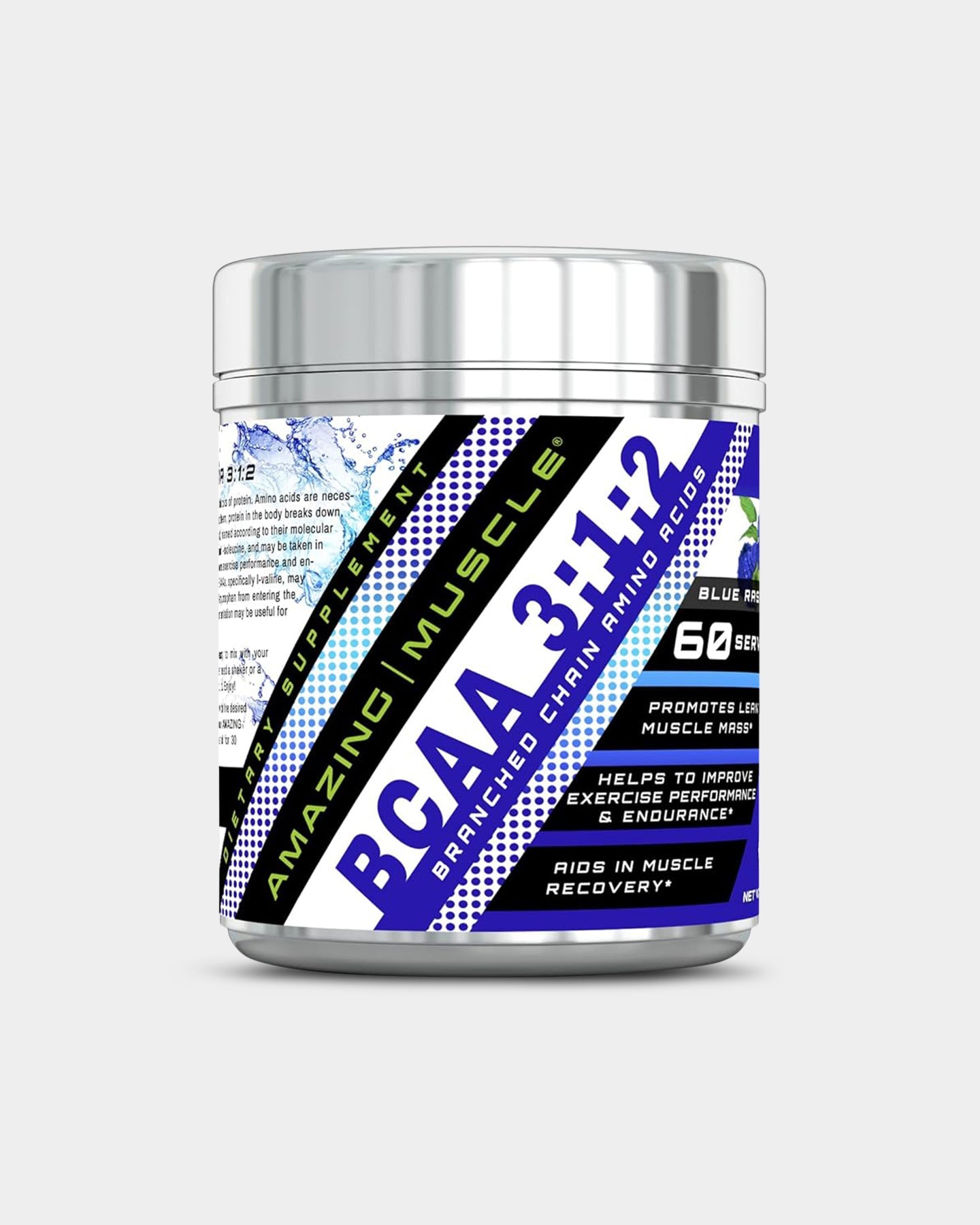Essential Guide to BCAA: 7 Proven Benefits for Effective Workouts in 2025
Amino acids are the building blocks of protein, and among them, Branched-Chain Amino Acids (BCAAs) play a crucial role for fitness enthusiasts and casual gym-goers alike. BCAAs, including leucine, isoleucine, and valine, are vital for muscle building and recovery. This essential guide will delve into the myriad benefits that BCAAs offer for effective workouts, making it clear why they have earned their place in the routines of athletes and gym novices in 2025.
Understanding the advantages of BCAAs, along with their optimal usage, can significantly enhance athletic performance and recovery. From facilitating muscle protein synthesis to helping with fat loss, BCAAs present a compelling case for incorporation into your fitness regimen. This article will guide you through the core benefits of BCAAs, how to use them effectively, and what to look for in quality products.

By the end of this guide, you will have a comprehensive understanding of BCAAs, their dosage, effects, and experiences shared by users. Let’s explore seven proven benefits of BCAA supplementation that can make a real difference in your workout efficiency and overall fitness journey.
Understanding the Benefits of BCAAs for Your Fitness
Building on the fundamentals of BCAAs, let’s take a closer look at their remarkable benefits and why they are indispensable for anyone looking to enhance their fitness game. BCAAs serve multiple purposes, making them an excellent supplement for a variety of fitness goals, including muscle gain, fat loss, and improved recovery times.
Enhancing Muscle Protein Synthesis
One of the primary benefits of BCAAs is their role in promoting muscle protein synthesis. Leucine, in particular, has been shown to activate pathways that enhance muscle growth after workouts. A research study highlighted in scientific studies reveals that BCAA supplementation post-exercise can effectively elevate muscle protein synthesis rates, leading to better gains and improved overall muscle health.
For those engaged in resistance training, incorporating BCAAs can lead to noticeable increased muscle mass over time. However, it is important to combine BCAAs with a well-rounded diet rich in protein to maximize these effects.
Supporting Fat Loss and Weight Management
BCAAs can play a crucial role in weight management and fat loss. By enhancing energy expenditure and reducing exercise-induced muscle damage, they contribute to a more effective workout, which can, in turn, support weight loss efforts. Additionally, BCAAs can help you retain muscle while losing fat—an essential factor for maintaining metabolic health during a caloric deficit.
A recommended approach is to take BCAAs during workouts or as part of a pre-workout routine to maintain energy levels. Users have reported effective fat loss results, reinforcing the positive impact of BCAAs on body composition.
Improving Exercise Performance and Endurance
BCAAs aren’t just about muscle growth; they are also valuable for enhancing exercise performance, especially in endurance sports. BCAAs can decrease fatigue during physical activities by reducing the perception of exertion, allowing athletes to push themselves harder for longer durations.
For endurance athletes, incorporating a BCAA supplement can mean the difference between maintaining strength through high-volume training sessions and succumbing to fatigue. Consider trying BCAA drinks during extended workouts for optimal performance.

Effective Usage and Recommendations for BCAA Supplementation
With these benefits of BCAAs established, let’s examine the best practices for BCAA supplementation, including recommended dosages and timing to ensure maximum benefits during workouts and throughout training regimens.
BCAA Dosage Guidelines
Determining the right BCAA dosage can be critical for achieving desired results. Most studies suggest a daily intake of 5-20 grams of BCAAs, but the ideal amount can vary based on individual fitness levels and goals. New users may want to start with 5 grams per serving, gradually finding what works best for their body.
For those involved in intense training, slightly higher doses may yield benefits. Always consult with a healthcare provider for personalized recommendations, especially if any underlying health conditions exist.
Timing Your BCAA Intake
When to take BCAAs is another important consideration. For optimal results, it’s recommended to consume BCAAs before and after workouts. Pre-workout intake can provide an energy boost, while post-workout can aid in recovery. Some individuals also prefer using BCAAs throughout their training sessions to help sustain endurance levels.
Choosing Quality BCAA Products
Each BCAA supplement can vary in quality and formulation, so it’s vital to choose high-quality products that fit your dietary needs. Look for BCAAs that are free from artificial additives and sugars for the best benefits. When evaluating options, read BCAA reviews and comparisons to ensure you find a product that meets your performance standards.
Real-Life Experiences with BCAA Supplementation
Empirical findings are essential in understanding how BCAA supplements impact users in real-life scenarios. Here’s what users have discovered through their experiences with BCAA supplementation.
Common Benefits Noted by Users
A significant number of fitness enthusiasts report enhanced recovery times and an overall improvement in workout quality when incorporating BCAAs into their routine. Users frequently mention feeling less soreness after intense workouts, suggesting that BCAAs indeed combat muscle fatigue.
Fitness amateurs, as well as professional athletes, share positive testimonials, emphasizing BCAAs contribution towards achieving fitness goals more efficiently. This anecdotal evidence aligns well with the scientific data backing BCAA effectiveness.
Potential Downsides and Considerations
While BCAA supplementation is generally safe for most people, some users report minor digestive discomfort. It’s advisable to start with smaller doses and assess your body’s reaction. Additionally, those following a balanced diet rich in protein may not notice significant differences with BCAA supplementation, reinforcing the importance of overall nutrition.
Final Thoughts on BCAA in Fitness Routines
The consensus is clear: BCAAs have proven benefits for both muscle gain and fat loss. However, their implementation should be combined with a diverse diet and consistent exercise to maximize results. Personal experiences vary, so take the time to find a BCAA product that fits your workout needs and preferences.
FAQ: Your Questions about BCAAs Answered
What are the main benefits of BCAAs?
BCAAs support muscle growth, improve recovery, enhance exercise performance, and assist in fat loss, making them a multifaceted supplement for fitness enthusiasts.
How should I take BCAAs?
BCAAs can be taken before, during, and after workouts. Depending on your goals and routine, choose a timing strategy that best suits your training needs.
Are there any side effects of BCAA supplementation?
Most users tolerate BCAAs well, but some may experience digestive discomfort. It’s vital to start dosages small and ensure they fit well within your dietary intake.
Can vegans take BCAAs?
Yes! There are plant-based BCAA options available on the market, making them suitable for vegan diets.
What should I consider when buying BCAA supplements?
When purchasing BCAA products, focus on the ingredient list, quality marks, and user reviews to ensure you are making an informed decision.
In conclusion, BCAAs continue to stand out as a proven supplement for enhancing workout performance and recovery. Proper knowledge and implementation can lead to significant improvements in fitness outcomes.
